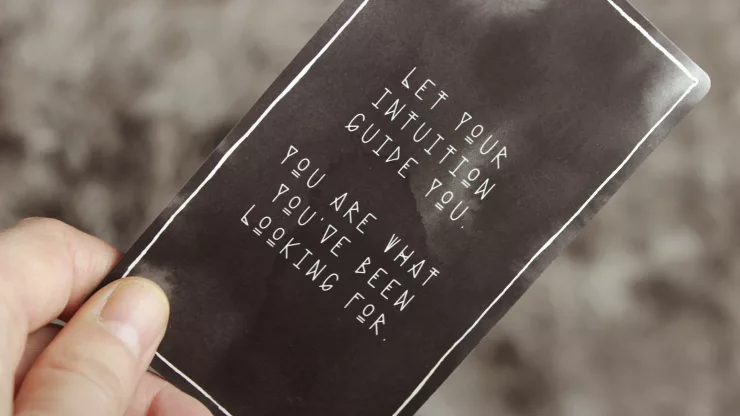Mindfulness has become a buzzword in recent years, with more and more people turning to this practice to achieve a happier and more fulfilling life. But what is mindfulness exactly, and how can it benefit you?
In this article, we’ll explore the benefits of mindfulness for happiness, as well as tips and resources to help you incorporate this practice into your daily life.
Jump to Section
What is Mindfulness?
At its core, mindfulness is the practice of being present and fully engaged in the current moment.
It involves paying attention to your thoughts, feelings, and physical sensations without judgment or distraction.
Mindfulness can be practiced in a variety of ways, including through meditation, breathing exercises, or simply paying attention to your surroundings.
Why does Mindfulness matter?
In today’s fast-paced world, it’s easy to become distracted and overwhelmed by the constant stream of information and stimuli around us.
Mindfulness can help you break free from this cycle and reconnect with your inner self.
By cultivating a sense of awareness and non-judgmental acceptance, you can reduce stress and anxiety, improve your mood and well-being, and increase your resilience in the face of adversity.
How can Mindfulness help you achieve happier living?
At its core, mindfulness is about cultivating a sense of inner peace and contentment.
By learning to be more present and engaged in the current moment, you can reduce stress and anxiety, improve your mood and well-being, and develop a greater sense of purpose and meaning in your life.
Mindfulness can also help you develop stronger, more satisfying relationships with others, by increasing your empathy, compassion, and communication skills.
The Benefits of Mindfulness
So what exactly are the benefits of mindfulness? Let’s take a closer look:
Improved mental health
- Reduced stress and anxiety: By learning to be more present and accepting of your thoughts and feelings, you can reduce the negative impact of stress and anxiety on your mental health.
- Improved mood and well-being: Mindfulness can help you develop a greater sense of contentment and happiness in your life, by focusing on the present moment and cultivating a sense of gratitude and appreciation.
- Increased resilience: By learning to accept and adapt to life’s challenges, you can develop a greater sense of resilience and coping skills.
Better physical health
- Lowered blood pressure: Mindfulness has been shown to help reduce blood pressure, which can improve overall cardiovascular health.
- Improved sleep: By reducing stress and anxiety, mindfulness can help improve the quality and duration of your sleep.
- Reduced chronic pain: Mindfulness can help reduce the negative impact of chronic pain on your mental health, and may even help reduce the physical sensation of pain itself.
Improved relationships
- Increased empathy and compassion: By cultivating a sense of non-judgmental awareness and acceptance, mindfulness can help you develop greater empathy and compassion towards others.
- Better communication and conflict resolution: Mindfulness can help you become more aware of your own thoughts and feelings, and better able to communicate them to others in a clear and constructive way.
- More satisfying social connections: By developing stronger relationships with others, you can increase your overall sense of happiness and well-being.
How to Practice Mindfulness
There are many different ways to practice mindfulness, including:
- Mindful breathing exercises: Focusing on your breath can help you become more present and centered in the current moment.
- Body scan meditation: This involves focusing on each part of your body in turn, and becoming aware of any sensations or feelings.
- Mindful eating: Paying attention to the taste, texture, and sensations of your food can help you become more present and mindful in your daily life.
- Walking meditation: This involves focusing on your surroundings and the sensations of walking, rather than getting lost in your thoughts.
- Loving-kindness meditation: This involves focusing on feelings of love and compassion towards yourself and others.
- Mindful journaling: Writing down your thoughts and feelings can help you become more aware of your inner self and develop greater self-insight.
Incorporating mindfulness into your daily life can be as simple as taking a few moments each day to focus on your breath or surroundings. Here are some additional tips for practicing mindfulness:
- Set aside a specific time each day for mindfulness practice
- Start with short sessions and gradually build up to longer ones
- Practice mindfulness in different settings (e.g., at home, at work, in nature)
- Use guided meditations or mindfulness apps to help you stay focused
- Be patient and non-judgmental with yourself, especially if you’re new to mindfulness practice.
Common Misconceptions about Mindfulness
Despite its growing popularity, there are still many misconceptions about mindfulness. Here are some of the most common ones:
- It’s religious or spiritual: While mindfulness does have roots in certain spiritual traditions, it can also be practiced in a secular, non-religious context.
- It’s only for people with anxiety or depression: Mindfulness can be beneficial for anyone who wants to cultivate greater awareness and contentment in their life, regardless of their current mental health status.
- It requires a lot of time and effort: You can practice mindfulness in as little as a few minutes a day, and it doesn’t require any special equipment or training.
- Other misconceptions and why they’re not necessarily true
Scientific Research on Mindfulness
There is a growing body of research on the benefits of mindfulness for mental and physical health.
For example, a recent meta-analysis of 209 studies found that mindfulness-based interventions were effective in reducing symptoms of anxiety and depression.
Other studies have shown that mindfulness can help lower blood pressure, reduce chronic pain, and improve sleep quality.
Mindfulness Resources
If you’re interested in practicing mindfulness, here are some resources to check out:
- Mindfulness apps and websites: Headspace, Calm, Insight Timer, and Smiling Mind are just a few of the many mindfulness apps available.
- Recommended books and articles: Mindfulness in Plain English by Bhante Gunaratana and The Power of Now by Eckhart Tolle are two classic books on mindfulness practice.
- Mindfulness retreats and workshops: Many meditation centers and wellness centers offer mindfulness retreats and workshops.
- Other helpful resources for practicing mindfulness
The Power of Mindfulness
In conclusion, mindfulness is a powerful tool for achieving greater happiness and contentment in your life.
By learning to become more present and mindful in your daily life, you can reduce stress and anxiety, improve your mental and physical health, and develop stronger, more satisfying relationships with others.
So why not give mindfulness a try today, and see how it can benefit you?

With a deep passion for personal development, Ben has dedicated his career to inspiring and guiding others on their journey towards self-improvement.
His love for learning and sharing knowledge about personal growth strategies, mindfulness, and goal-setting principles has led him to create My Virtual Life Coach.
Contact Ben at [email protected] for assistance.




